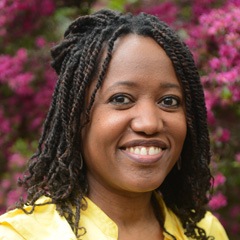The SEA-PHAGES M*ycobacteriophage Annotation Review Team is a group of SEA-PHAGES faculty members who review genome annotations done in SEA-PHAGES classrooms, revise them as needed, and submit them to GenBank.
In the early years of the SEA-PHAGES program, each school annotated a single genome sequence. These were reviewed at the University of Pittsburgh by Welkin Pope and Debbie Jacobs-Sera before they were sent off to GenBank. By 2012, between the advances in Next-Gen sequencing technology and the number of schools participating in SEA-PHAGES, it became apparent that two people were not enough to review everything! SM*ART was started in 2013 as a team of experienced faculty members who would review the annotations from all the SEA schools, revise them as needed, and submit them to GenBank, as well as provide feedback to professors on their annotation work to improve the annotation quality of the SEA as a whole.
SM*ART duties now also include ongoing curation of the phagesdb.org and Phamerator databases to ensure that the data is of the highest possible quality.
SM*ART membership is invitation-only. The best way to get an invitation is to submit genome annotations of the highest possible quality.
The SMART Scholars are led and organized by Welkin Pope.
* The SMART and its acronym were conceived when the SEA-PHAGES program was primarily concerned with mycobacteriophages. Now that the focus has broadened to all Actinobacteriophages, and SMART members do indeed QC annotations of phages that infect Gordonia, Streptomyces, Arthrobacter, and others, the acronym should technically be changed. But SAART doesn't have the same ring.

2016 SMART Scholars
So far in 2016, a total of 103 annotations have been reviewed and quality-controlled by SMART Scholars.

2015 SMART Scholars
In 2015, a total of 77 annotations were reviewed and quality-controlled by SMART Scholars.

2014 SMART Scholars
In 2014, a total of 30 annotations were reviewed and quality-controlled by SMART Scholars.



















